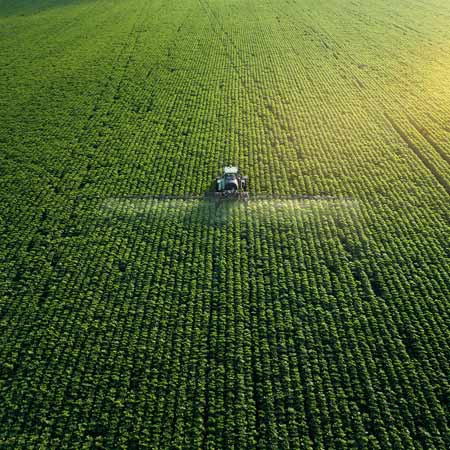Recently, the BBC featured an article on Felix Collins, the founder of Full Circle Biotechnology, who is utilizing AI to enhance the efficiency of insect farming. His objective is to develop eco-friendly alternatives for animal feed through rearing black soldier fly larvae. While insect-based feed offers environmental advantages, it remains more expensive than soy-based alternatives. To address this issue, Full Circle employs AI to optimize production processes by analyzing factors such as temperature and food quantity.
The growing use of AI in various industries, including healthcare and finance, has transformed traditional practices. Similarly, AI-driven technologies are revolutionizing farming methods, from crop monitoring to livestock management. AI’s ability to process vast amounts of data and make predictive analyses offers opportunities for increased productivity and sustainability in agriculture.
AI is revolutionizing agriculture by improving crop yields, predicting weather patterns, and optimizing resource management. Machines can autonomously analyze soil conditions, monitor crop health, and even harvest produce. Farmers can make data-driven decisions to increase efficiency and sustainability, addressing challenges such as rising costs and environmental concerns.
In agriculture, AI is used for crop health and soil analysis, livestock management, and autonomous machinery. AI analyzes soil data from sensors and images to assess soil health and customize fertilization needs, reducing waste and improving crop yields. AI-enabled drones monitor plant health, detect stress or diseases early, and predict yield accurately, aiding in harvest planning and logistics. In livestock management, AI monitors health indicators such as temperature and activity levels, enabling early detection of health issues. In dairy farming, AI improves milk production efficiency by detecting cow health issues. AI-powered machinery, like self-driving tractors and robotic harvesters, improves farming efficiency and precision.
AI promotes sustainable farming practices by optimizing resource usage, enhancing crop quality, improving soil health, and reducing greenhouse gas emissions. Although initial costs and potential job losses are concerns, AI’s benefits in efficiency and sustainability are significant, promising a transformation in farming practices for future generations.
Agritech Startups Harnessing AI Power
Innovative agritech startups are revolutionizing farming methods by leveraging the potential of artificial intelligence. These companies analyze vast amounts of data, provide actionable insights to farmers, and facilitate efficient resource management through precision farming techniques. By integrating AI technology, farmers can make informed decisions, leading to enhanced profits and optimized sustainability.





